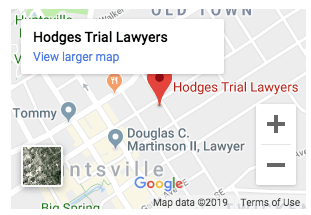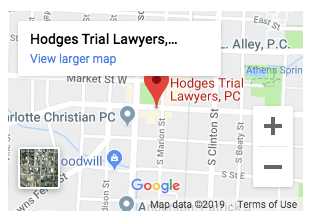December is National Drunk and Drugged Driving Prevention Month, and around the holidays, there is a spike in alcohol and drug-related car wrecks. During the holiday season, it is important that all motorists practice safe driving in observance of National Drunk and Drugged Driving Prevention Month.
What are the Dangers of Drunk Driving?
The amount of alcohol in a driver’s body can be measured by how much is circulating in the blood; this is usually determined by breath, blood, or urine tests. The legal limit of blood alcohol concentration (BAC) is 0.08 percent. However, alcohol consumption under the legal limit can also affect driving ability.
Driving under the influence (DUI) of alcohol is dangerous because, even at 0.02 percent BAC level, there can be some loss of judgement skill, and a decline in visual function, and the ability to perform two tasks simultaneously. At a 0.05 percent BAC level, a driver has less ability to focus the eyes and track moving objects, reduced coordination, and less inhibition. This lack of inhibition, coupled with an exaggerated sense of one’s capabilities, may lead a driver to attempt maneuvers beyond their abilities.
At the legal 0.08 percent BAC level, a driver’s reasoning, judgement, self-control, and memory are impaired. There can also be short-term memory loss. Muscle coordination is poor affecting speech, vision, balance, reaction time, and hearing. Above the legal BAC limit, at 0.10 and .15 percent, deterioration of control and reaction time is clear. The driver’s thinking is slowed, speech is slurred, and the ability to maintain lane position and brake properly is reduced.
According to the National Highway Transportation Safety Administration (NHTSA), every 50 minutes in the United States, a person dies in a drunk driving crash. Last year, the total number of deaths was over 40,000.
What are the Dangers of Drugged Driving?
Many states are legalizing the use of marijuana and other drugs that were previously criminalized. In November, Oregon became the first state to decriminalize possession of small amounts of heroin, methamphetamine, LSD, oxycodone, and other hard drugs. There is no simple test or widely accepted definition of impairment for drugged drivers. However, conservative estimates show that around 20 percent of crashes in the United States are related to drugged driving. In Alabama, a driver can be convicted of drugged driving if the use of a controlled substance, or the combination of a controlled substance and alcohol, renders them incapable of driving safely. Like alcohol, drugs slow a driver’s judgement, muscle coordination, and reaction time. Drugs, such as cocaine and methamphetamines, can also induce aggressiveness among drivers.
Drugged driving does not refer only to the use of illegal substances. Many prescription medications and over-the-counter drugs can have side effects or interactions that impair driving ability. Side effects can include extreme drowsiness, dizziness, and nervousness. It is important to note that the legal entitlement to use a controlled substance is not considered a defense against a DUI charge in Alabama.
What are the Penalties of Drunk or Drugged Driving in Alabama?
Like many states, Alabama’s penalties for drunk and drugged driving escalate for multiple offenses. Those convicted of a first offense face a license suspension for 90 days, jail time of up to one year, and a fine ranging from $600 to $2,100. However, subsequent punishments are more severe:
- Second Offense: A second offense within five years results in license suspension for a year, fines between $1,100 to $5,100, mandatory imprisonment of at least five days or up to one year, and mandatory community service for no less than 30 days. Imprisonment may include hard labor.
- Third Offense: A third offense means a license suspension for three years, fines of $2,100 to $10,100, imprisonment, which may include hard labor for at least 60 days or up to a year.
- Fourth Offense: A fourth and any subsequent offenses is considered a Class C felony. Offenders lose their license for five years, pay fines from $4,100 to $10,100, and can face imprisonment for one year or up to 10 years. A suspension of a sentence can be made for a defendant who enrolls in and successfully completes a state certified chemical dependency program.
In Alabama, a driver convicted of a DUI with a child under 14 years old in the vehicle receives double the minimum punishment.
Preventing Drunk and Drugged Driving
National Drunk and Drugged Driving Prevention Month reminds everyone to take extra care to prevent alcohol and drug-related accidents, injuries, and fatalities. Impaired driving is extremely deadly. There are simple steps that can be taken to prevent drunk or drugged drivers from getting behind the wheel:
- Plan for a safe ride home, designate a non-drinking friend to drive when enjoying alcohol at a party.
- Never let a friend who has been drinking drive themselves home.
- Never get behind the wheel after drinking alcohol or using drugs, call a taxi, rideshare service, or a friend or family member.
- Anyone serving alcohol at a party should make sure their guests have a safe and sober ride home.
- Notify the local authorities after noticing an impaired driver on the road, this could save someone’s life.
- Always use a seat belt, whether driving or riding as a passenger, to reduce the chances of serious injury from impaired drivers.
If a car accident happens, consult with a lawyer about one’s legal options.
Huntsville Car Accident Attorney at Hodges Trial Lawyers, P.C. Advocate for Victims of Impaired Driving Accidents
If you were injured by a drunk or drugged driver, you may be eligible for compensation. Contact one of our Huntsville car accident attorney at Hodges Trial Lawyers, P.C. to find out how we can help you get justice and compensation. Call us at 256-539-3110 or complete our online form for a free consultation. Located in Huntsville and Athens, Alabama, we serve clients throughout North Alabama including those in Madison County, Limestone County, Marshall County, Jackson County, Morgan County, and Lauderdale County.



